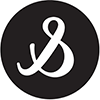Understanding the real cost when booking via an OTA
Jun 1, 2020
Online Travel Agencies (OTAs) are a fantastic tool for comparing prices of hotels and for making bookings quickly. But while they’re great for city hotels and places where you don’t need a lot of help, rarely are they useful when booking a ski trip.
Here are some factors to consider before booking through an OTA. Most of these also apply when booking directly with a hotel.
- Can you really figure out if the hotel is right for you? Location is one thing (Google maps doesn’t show the location of the slopes or gradient of hills… what if the hotel is at the bottom of a steep hill?), but do you really know everything you need to know about that property? (Keep in mind that all the content on OTAs is written by the hotels themselves)
- Who do you call if you have a question about the hotel? An OTA call-center? The hotel?
- Where will you get important information about your destination before you go? How to get there, how to get from the bus stop to the hotel, where to buy groceries, what is the best restaurant and do you need to make reservations, how much do lift tickets cost, how do you get to the ski slopes… and so on. Many hotels don’t provide this sort of detailed assistance, especially if you book via an OTA.
- What happens if you have a problem while you’re traveling? Who will you call for help?
- Consider the time it will take to research, book and pay for all the extras you will need (transfers, lift tickets, rentals, lessons, ski guides….). If you purchase these things in the resort on your credit card you will be subject to the credit card exchange rate and international surchages.
- And finally and most importantly… the real cost. Firstly, when booking a hotel via an OTA you don’t get access to the great rates that are provided to regular travel agents like Scout for hotel deals and specials on extras. Many of these deals aren’t available unless you book via a travel agent. Secondly, are you clear if all taxes, fees and extra charges are included? And thirdly, do you really know how much it’s actually going to cost? OTAs take the cost in supplier currency and convert it using the current “Market Rate” (such as what you see on xe.com) to display it as a “quote” for the customer’s booking. However, with most OTAs you actually pay using your credit card at the hotel, which charges your card in their local currency. The exchange rate credit card companies use is significantly different to the Market Rate. In most instances 5-7% worse. In addition, almost all credit cards charge an international credit card charge fee of around 2%.* So, in fact, the customer pays about 7-9% more than the price displayed on the OTA website. For a big ski trip that can amount to a lot! Other factors to take into account are exchange rate movements between time of booking and your visit (which is when it’s charged). To avoid this risk, Scout gives you the chance to lock in an exchange rate in advance, something you can’t do if you book via an OTA.
OTA Case Study
A client came to Scout saying our quote was more than what they had found for the same room and same dates in Nozawa Onsen in Japan on a well-known OTA.
Scout Quote: AUD$2,810
Vs
OTA "Quote": AUD$2,732
(Market Exchange Rate for that day AUD1= JPY 85.38)
To assess the differences between the two quotes we broke down the actual expected price if they booked via the OTA:
- Hotel bill charged in JPY on their credit card: ¥233,280
- Credit Card Exchange rate offered: AUD 1 = JPY 80.9 (Based on major credit card’s rate offered for that day)
- Converted amount charged to customer: AUD$2,883
- 2% International charge surcharge: $58
Actual charge to customer if booked via OTA: $2,941
That’s $227 more than the original OTA quoted price and $131 more than Scout’s quote. It's a similar story when booking directly with a hotel as you will have the same credit card charges.
And, of course, that doesn’t count the value of the personalized support, detailed itineraries and Scout Field Guides with insider tips that you get when booking via Scout.
*Scout uses very favorable exchange rates thanks to our arrangements with banks and payment systems. Generally our exchange rate is about 2-3% less than the Market Rate. While we do not charge an international credit card fee we do apply a 1.8% surcharge for all credit card payments. You can choose to avoid this surcharge by paying by direct bank transfer.














Subscribe to the Scout newsletter - a regular roundup of news from the slopes and magazine articles.